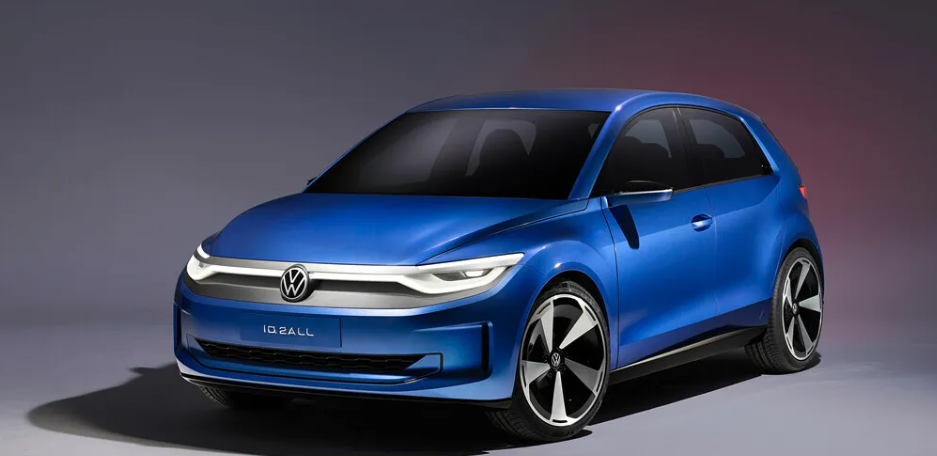In a surprising departure from its recent touchscreen-centric designs, Volkswagen is turning back the clock with the interior of its upcoming compact EV, the ID.2all. This move comes after a wave of customer feedback criticizing the brand’s heavy reliance on touchscreens, signaling a shift towards more traditional controls.
The revelation was made by Autocar, which spotted the ID.2all concept at the Volkswagen City Studio in Copenhagen. Unlike its predecessors, this new model boasts a significant number of physical buttons, a feature that has been notably absent in recent Volkswagen designs. According to Darius Watola, a Volkswagen interior designer, this decision is a response to customer demand, particularly in Europe, where there has been a clear preference for physical buttons.
This change in direction is a direct response to customer dissatisfaction with Volkswagen’s previous touchscreen-heavy designs, such as those found in the Golf Mk8 and ID.3. Volkswagen CEO Thomas Schäfer acknowledged this feedback, stating that the touchscreen-centric approach endorsed by former CEO Herbert Diess had “definitely done a lot of damage” to customer loyalty.
The interior of the ID.2all will feature a row of backlit physical buttons for climate control and a rotary dial to control the screen, reminiscent of BMW’s iDrive system. While the infotainment system will still rely on touchscreen controls for certain functions, Volkswagen is clearly aiming to strike a balance between modern technology and familiar, user-friendly interfaces.
In addition to the shift towards physical buttons, Volkswagen is also making strides in sustainability by phasing out materials like hard plastic, leather, chrome, and glue from its interior designs. Despite these changes, the company aims to keep the ID.2all’s price below €25,000 ($27,000), indicating that the interior materials may not be as upscale as some competitors.
Under the hood, the ID.2all will be based on a new entry-level version of Volkswagen’s MEB platform, featuring a 223HP motor capable of accelerating from 0 to 62 mph in seven seconds and offering an estimated range of 280 miles. The exterior design draws inspiration from iconic Volkswagen models like the Beetle and Golf but incorporates modern elements for a fresh look.
The ID.2all is scheduled to debut in Europe in 2025, where it will face competition from a range of small, affordable EVs, including offerings from Renault. However, it is unlikely to make its way to North America, where consumer preferences have shifted towards SUVs and larger vehicles, leading to a decline in demand for compact cars.
Volkswagen’s decision to reintroduce physical buttons in the ID.2all represents a strategic shift towards meeting customer preferences while maintaining a balance between modern technology and classic design elements. As the automotive industry continues to evolve, this move could position Volkswagen as a brand that listens and responds to its customers’ needs.
(Source: Jennifer Mossalgue | Electrek | Leon Poultney | TechRadar | Reuters)









